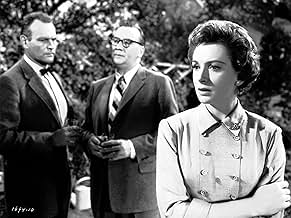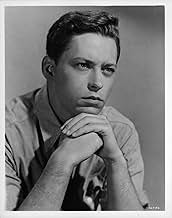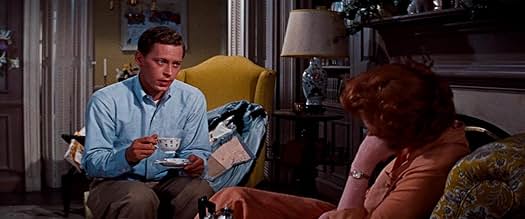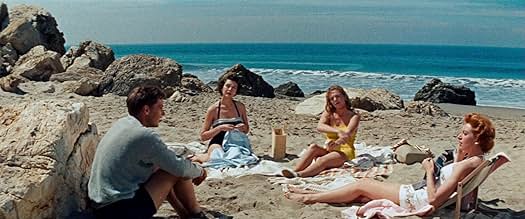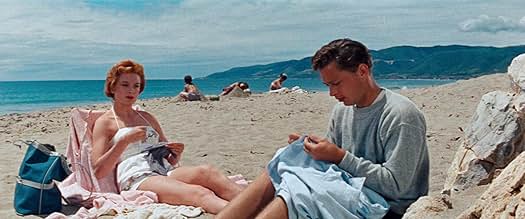Those who had the good fortune to see Deborah Kerr onstage in the Elia Kazan production of "Tea and Sympathy," will attest to her unforgetable performance. Kerr not only played it on Broadway but also toured with it, a treat for all attendees. Now nearly a half century later, her performance on film, which was very much influenced by her stage style, begins to show a little wear around the edges. It must be difficult to change one's approach after having played a role so successfully night after night. In this case, her inflections, accents, phraseology, pauses, gestures and the like are essentially theatre-based, designed to play to the whole house up to the balcony. In the intimacy of film, this becomes a bit much in the long run, and results in a much more broad, deliberate and stylized Kerr than in any of her other film work. Her character tends to emerge now more as a busy-body, snooper, peeping tom than was ever intended, and certainly it did not come across that way when the film was first released. A landmark film of sorts--for a major studio to tackle a sensitive subject in a major production--"Tea and Sympathy" benefits from a sincerely written script by Robert Anderson, solid direction by Vincent Minnelli and a secure supporting cast. Visually Deborah Kerr is beautiful, and is totally committed to both the play and her role. During her lengthy film career, Kerr certainly contributed a wealth of finely crafted performances.


